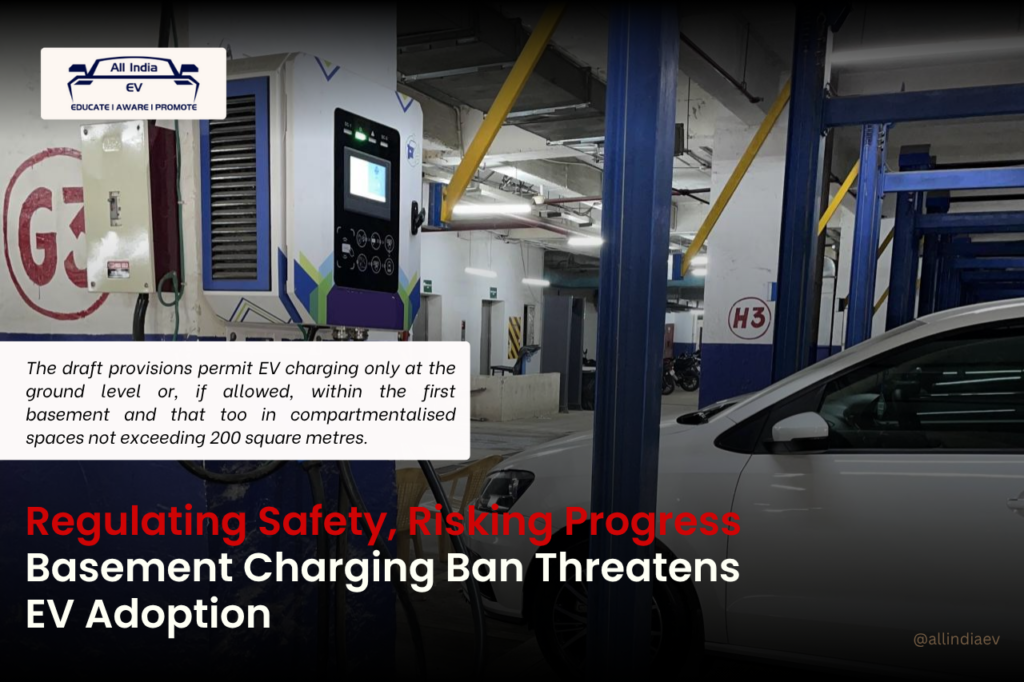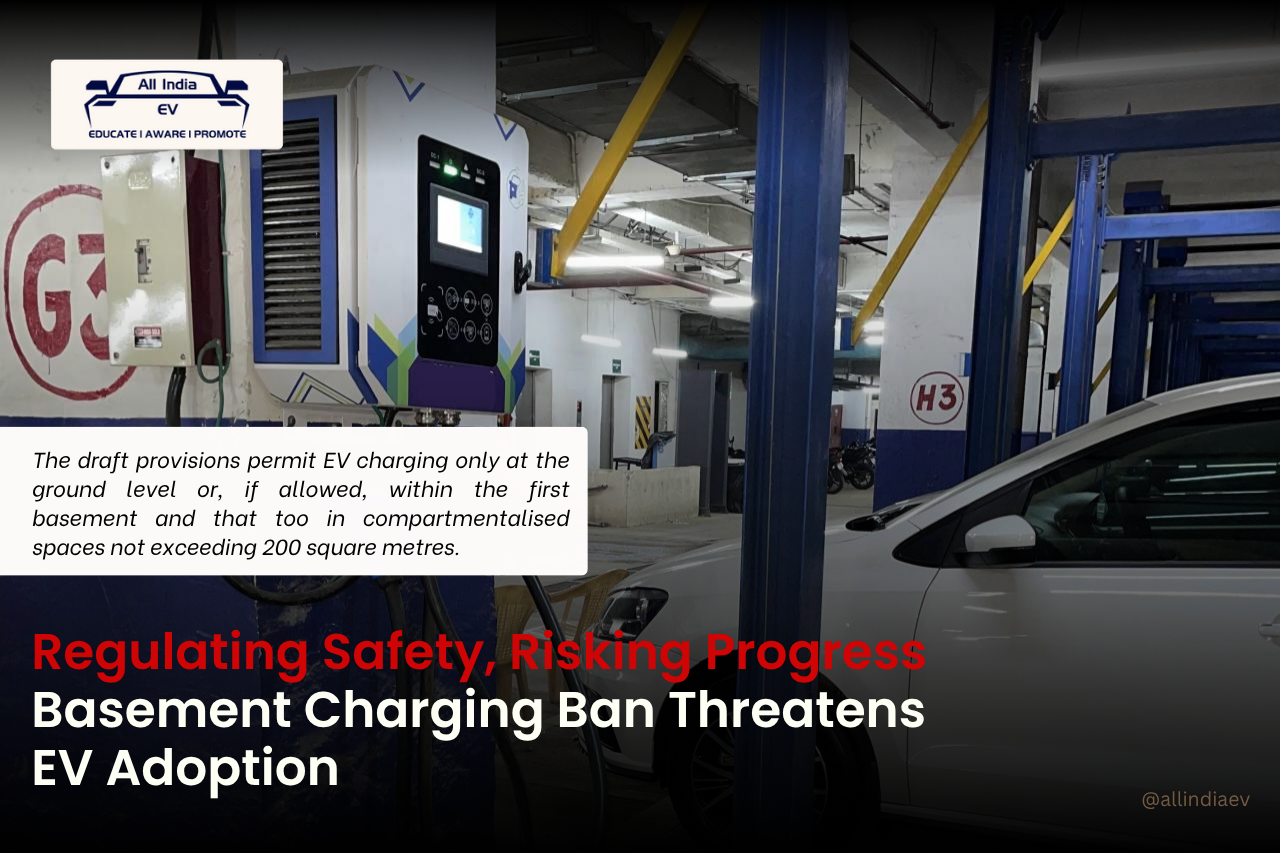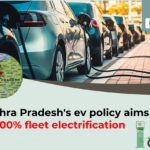
Experts Warn New Fire Safety Rules Restricting EV Charging to Ground Floors or Limited Basement Areas Could Undermine Government Incentives and Impact EV Sales in Major Indian Cities
India’s ambition to achieve 30% electric vehicle (EV) adoption by 2030 could face a major roadblock. The proposed amendments to the National Building Code (NBC) include restrictions on parking and charging EVs in basements of residential and commercial complexes, citing fire safety concerns.
According to the draft provisions, EV charging will be allowed only at the ground level or, in specific cases, within the first basement — and even then, only in compartmentalised spaces not exceeding 200 square metres. Experts warn that these limitations could significantly hamper EV adoption in urban areas, where most vehicles are parked in multi-level basements due to limited surface space.
India’s EV ecosystem has witnessed exponential growth in recent years. Annual EV sales surged from 50,000 units in 2016 to over 2 million in 2024, with India now home to 5.45 million EVs, accounting for around 9% of the global total. However, the share of EVs in India’s total vehicle population remains modest at 7.66%, compared to the global average of 16.5%.
With initiatives such as the PM E-Drive scheme and state-level incentives, industry forecasts predict that annual EV sales could touch 17 million by 2030, led predominantly by two-wheelers. But stakeholders warn that the NBC’s proposed changes could derail this upward trajectory.
“If consumers believe they can’t park or charge EVs at home, they simply won’t buy them. It directly contradicts government efforts to accelerate EV adoption,” said an executive from an EV charging infrastructure firm, requesting anonymity.
Urban impact could be severe
The proposed amendments have raised alarm bells in metropolitan cities like Mumbai, Delhi, and Bengaluru, where multi-level underground parking is standard for both residential and commercial buildings. Restricting charging in basements could discourage real estate developers from integrating EV-ready infrastructure in new projects.
According to industry estimates, India will need over 1.3 million public and private charging stations by 2030 to meet its national EV goals. Experts say the NBC’s current draft does not reflect the reality of urban India, where space constraints make underground parking essential.
“Parking restrictions like these don’t align with how Indian cities function. High-rises dominate metros, and their parking is largely underground,” said Awadhesh Jha, Chairman of the Indian Charge Point Operators Association.
He added that global data shows EVs are statistically safer than petrol or diesel vehicles when it comes to fire incidents, arguing that the NBC draft “ignores this evidence.”
Industry demands wider consultation
Industry experts have also questioned the lack of stakeholder engagement in drafting the amendments. The Bureau of Indian Standards (BIS), which governs the NBC, reportedly introduced the proposal without extensive consultation with the EV or real estate sectors.
“EVs in India already meet stringent safety and certification norms set by ARAI (Automotive Research Association of India). We’ve recommended that BIS engage with technical bodies to assess actual risk before finalising the provisions,” said the founder of a Hyderabad-based EV charger manufacturer, whose firm has submitted detailed feedback to BIS. As India pushes toward its clean mobility goals, the EV industry believes that balanced regulation, not restrictive policies, will be key to maintaining the country’s EV growth momentum.










